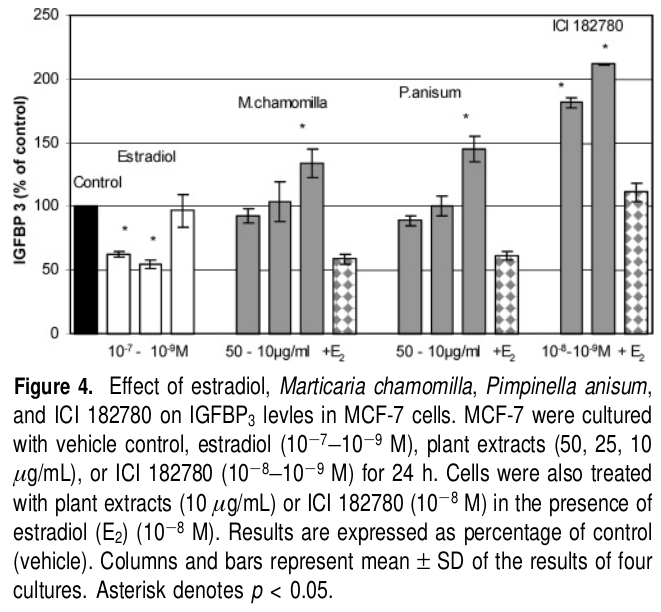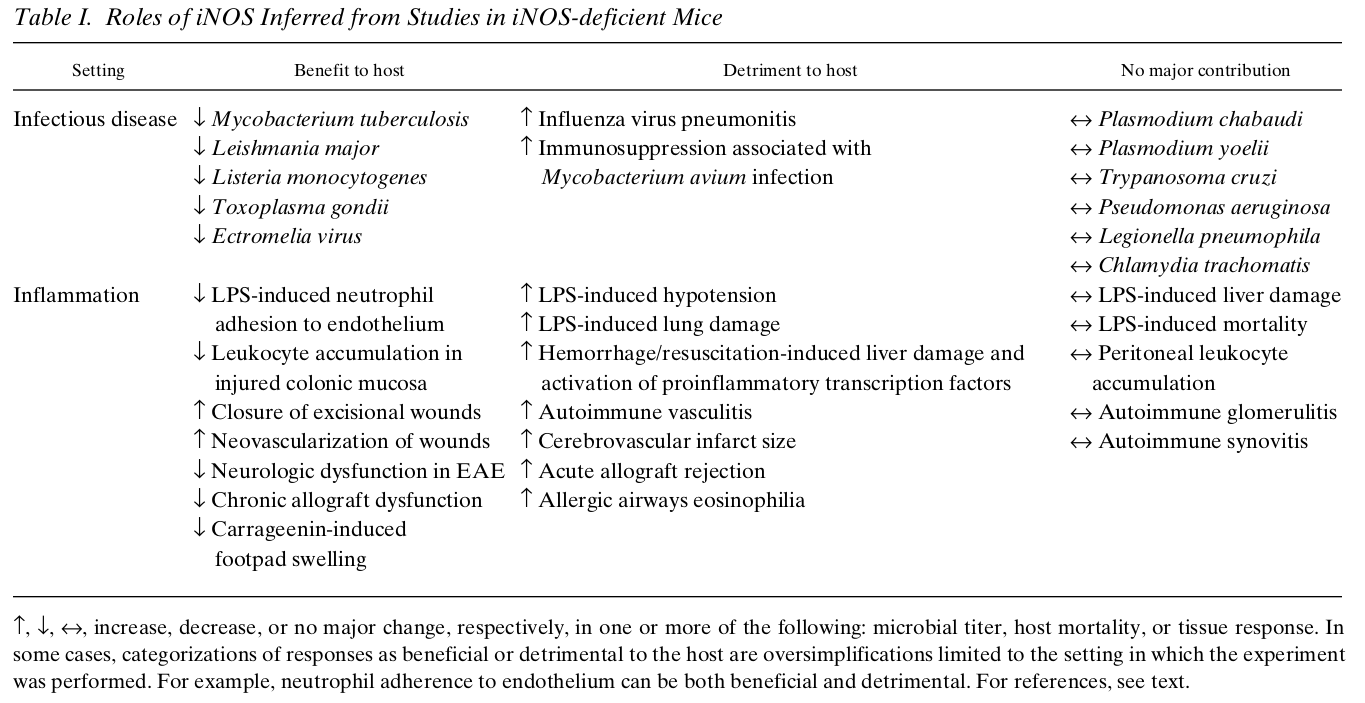@Fructose said in Chamomile has anti-estrogen and pro-progesterone properties:
his plant can function as a selective estrogen receptor, and this property can be harnessed in regulating endogenous estrogens in individuals with PCOS who have high estrogen levels.
A detailed study showing the selective estrogen receptor modulator (SERM) properties of chamomille:
From the abstract: "...we submitted four plant aqueous extracts derived from
Greek flora (Sideritis euboea, Sideritis clandestina, Marticaria chamomilla, and Pimpinella anisum)
in a series of in vitro biological assays reflective of SERM profile. We examined their ability (a) to
stimulate the differentiation and mineralization of osteoblastic cell culture by histochemical staining
for alkaline phosphatase and Alizarin Red-S staining, (b) to induce, like antiestrogens, the insulin
growth factor binding protein 3 (IGFBP3) in MCF-7 breast cancer cells, and (c) to proliferate cervical
adenocarcinoma (HeLa) cells by use of MTT assay.

From Discussion:
(a) "Our study therefore, based on reliable biological tests and biochemical markers reflective of osteoblastic activity, reveals that the aqueous extracts of Sideritis euboea, Sideritis clandestina, Marticaria chamomilla, and Pimpinella anisum stimulated differentiation and mineralization significantly at a concentration range 50-25 µg/mL."
(b) "The antiestrogenic effect of plant extracts on IGFBP3 levels was observed at a concentration of 10 µg/mL, whereas at higher concentrations (25-50 µg/mL), there was no effect. This is in agreement with previous reports, which demonstrate that plant extracts may exhibit differential activities over a physiological concentration range (being agonist or antagonist) suggesting an estrogen-receptor-mediated effect at low concentration and an ER-independent effect at higher concentration."
(c) "The absence of proliferative effects of the extracts on HeLa cells implicates that their action is neutral on these cells, at least via an EBS type II dependent mechanism."
@Kasper said:
Isn't that caused by apigenin?
"In our experiments, we cannot attribute the biological effects observed to particular constituents, because many other compounds are present in the plant extracts. Our study investigates the effect of the plant aqueous extracts as a whole on bone metabolism, as well as on breast and uterine tumor cells."


 —to raise intracellular methylglyoxal levels. Add to this a Gerson-type diet (sans the linoleic acid-containing flaxseed oil) and you'd probably be reversing tumors in a manner similar to the lab-rats given such things. Glyoxylase I & II together turn methylglyoxal into lactic acid. Inhibiting one of these enzymes lowers intracellular lactic acid concentrations. Considering just this one enzymatic system alone, low methylglyoxal levels are synonymous with high lactic acid levels. This could help explain the findings of Otto Warburg, while linking together the apparently unrelated observations of two great biochemical Nobelists—Otto Warburg of Germany and Albert Szent-Györgyi of Hungary. The plant polyphenol baicalein appears to the most powerful glyoxylase I inhibitor among the class of polyphenols. The low-methionine diet of Gerson should be stressed, as is low in methionine; this would be expected to lead to low intracellular polyamine levels—powerful growth factors which act on DNA replication by directly stabilizing and/or uncoiling the helix. Methylglyoxal binds to, and inactivates polyamines. And limiting linoleic acid should limit excessive prostaglandins, intracellular autocrine hormones which effect DNA→mRNA transcription through the nuclear PPAR receptors."
—to raise intracellular methylglyoxal levels. Add to this a Gerson-type diet (sans the linoleic acid-containing flaxseed oil) and you'd probably be reversing tumors in a manner similar to the lab-rats given such things. Glyoxylase I & II together turn methylglyoxal into lactic acid. Inhibiting one of these enzymes lowers intracellular lactic acid concentrations. Considering just this one enzymatic system alone, low methylglyoxal levels are synonymous with high lactic acid levels. This could help explain the findings of Otto Warburg, while linking together the apparently unrelated observations of two great biochemical Nobelists—Otto Warburg of Germany and Albert Szent-Györgyi of Hungary. The plant polyphenol baicalein appears to the most powerful glyoxylase I inhibitor among the class of polyphenols. The low-methionine diet of Gerson should be stressed, as is low in methionine; this would be expected to lead to low intracellular polyamine levels—powerful growth factors which act on DNA replication by directly stabilizing and/or uncoiling the helix. Methylglyoxal binds to, and inactivates polyamines. And limiting linoleic acid should limit excessive prostaglandins, intracellular autocrine hormones which effect DNA→mRNA transcription through the nuclear PPAR receptors."